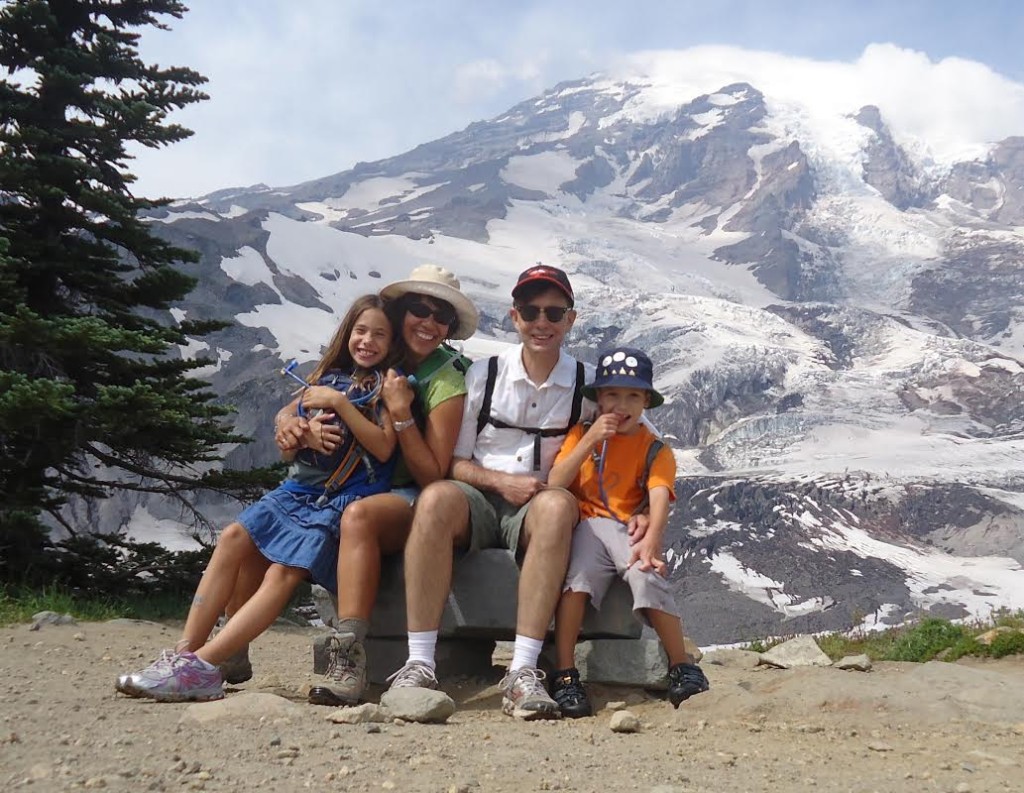Podcast: Play in new window | Download
Subscribe: Apple Podcasts | RSS
Dr. Michael Dickinson is the Esther M. and Abe M. Zarem Professor of Bioengineering at the California Institute of Technology. He received his PhD in Zoology from the University of Washington and afterwards worked briefly at the Max Planck Institute for Biological Cybernetics in Tübingen, Germany. Michael has received numerous awards and honors during his career, including the Larry Sandler Award from the Genetics Society of America, the Bartholemew Award for Comparative Physiology from the American Society of Zoologists, a Packard Foundation Fellowship in Science and Engineering, a MacArthur Foundation Fellowship, and the Quantrell award for Excellence in Undergraduate Teaching from the University of Chicago. He is also a Fellow of the American Academy of Arts and Sciences. Michael is here with us today to tell us all about his journey through life and science.
People Behind the Science Podcast Show Notes
Life Outside of Science
In addition to being an excellent scientist, Michael is quite the enthusiastic musician. He played guitar for many years, and has been strumming on the ukulele for about 10 years as well. Much of his free time is spent gardening native plants and enjoying the company of his family.
The Scientific Side
On one hand, his work focuses on the biomechanics and the biophysics of life with a particular focus on how animals fly. He looks at these questions through a neuroscientific lens, trying to understand behavior and flight control.
A Dose of Motivation
Strive for self honesty.
What Got You Hooked on Science?
As a self-described nerdy kid, Michael loved all of the old National Geographic shows, especially the Jacques Cousteau and Jane Goodall specials. Michael initially wanted to be a marine biologist, but as he went through school, he turned his attention towards art, leaving high school early to focus on art in college. He quickly realized being an artist might not be the best fit. Shortly afterward, he discovered neurobiology.
The Low Points: Failures and Challenges
Michael was doing research on long-term depression as a postdoc, and it was going poorly. He didn’t get along with his advisor, and it just seemed like the wrong project, wrong lab, and wrong everything. After 14 months, he was ready to give up and leave science because he was having such a terrible experience.
A Shining Success!
He was able to turn the aforementioned dark time into a success by calling a former mentor from the Max Planck Institute. Within a month, Michael was on his way to Germany to tackle a new adventure. He decided to investigate how the biomechanics and neural components fit together for flapping wings. These projects worked out really well and rejuvenated his interest in continuing in science.
Book Recommendations
An Army at Dawn by Rick Atkinson, Battle Cry of Freedom: The Civil War Era by James McPherson, The Making of the Atomic Bomb by Richard Rhodes.
Most Treasured Travel
Organ Pipe Cactus National Monument is among his favorite travel destinations. Many fruit fly species are specialized for life in the deserts of southwest America, and Michael went with lab members to collect samples of these fruit flies. The fruit flies’ ability to survive in such an inhospitable part of the world really gave Michael an appreciation for the flies as more than just a model organism.
Quirky Traditions and Funny Memories
Michael and his lab typically have an annual camping trip to a beautiful location. During a hike one year, they had all stopped for a water break when to their surprise a guy came down the trail wearing hiking boots and nothing else. It was such an unexpected and bizarre occurrence that all it takes is a mention of the “naked hiker” for anyone in the lab to crack up laughing.
Advice For Us All
Don’t be afraid to leave your comfort zone.
Guest Bio
Michael Dickinson was born in Seaford, Delaware in 1963, but spent most of his youth in Baltimore and remains a lifelong Orioles fan. He attended college at Brown University, originally with the intent of majoring in Visual Arts, but eventually switched to Neuroscience, enticed by a fascination for the mechanisms that underlie animal behavior. While in college, he studied the roles of neurons and neurotransmitters in the control of feeding behavior in leeches. He received a Ph. D. in Zoology at the University of Washington in Seattle in 1991. His dissertation project focused on the physiology of sensory cells on the wings of flies. It was this study of wing sensors that led to an interest in insect aerodynamics and flight control circuitry. Dickinson worked briefly at the Max Planck Institute for Biological Cybernetics in Tübingen, Germany, and served as an Assistant Professor in the Dept. of Anatomy at the University of Chicago in 1991. He moved to University of California, Berkeley in 1996 and was appointed as the Williams Professor in the Department of Integrative Biology in 2000. Dickinson served on the faculty at Caltech from 2002 to 2010. From 2010 to 2014, he was the Ben Hall Professor of basic life science in the Department of Biology at the University of Washington. He is now the Abe and Esther Zarem Professor of Biology and Bioengineering at Caltech.
Dickinson’s research interests broadly concern the mechanistic basis of animal behavior. Specifically, he has studied the flight behavior of insects simultaneously at several levels of analysis, in an attempt to integrate cellular physiology, biomechanics, aerodynamics, and behavior. He has published over 150 scientific papers in journals including Science, Nature, Current Biology, and Proceedings of the National Academy. His work has been featured in many television programs including NOVA and Discovery Channel in several countries including the United States, Canada, United Kingdom, Australia, New Zealand, Germany, and Japan.

Leave a Reply